By William Ehart
Lobbying is a big-money game: The traditional firms charge high retainer fees, and staffers with strong advocacy backgrounds command premium salaries.
But that doesn’t mean influence in Washington, D.C., and state capitals is beyond the reach of smaller-revenue associations.
In recent years, D.C.-based firms such as LobbyIt and HillStaffer have stepped in to provide advocacy services on an as-needed basis for manageable chunks of money, and both report fast growth. LobbyIt offers monthly packages in four different tiers of service, while HillStaffer charges hourly for various components of advocacy from meeting members of Congress to building coalitions.
Ray Leonhard, CEO of the Reston, Va.-based Brick Industry Association, knew his $4 million-revenue group needed help a few years ago, with new regulations being imposed and his industry still reeling from the Great Recession. Through attrition, the association has reduced staff from 30 to 15 today.
When BIA’s two full-time lobbyists left the group in late 2012, Leonhard gave LobbyIt a call.
“We have reduced our lobbyist costs 70 percent compared to when we had it in-house, and it’s been far more effective,” Leonhard said. “We have a much more experienced and better-connected team than we could ever have afforded to hire on our own.”
LobbyIt schedules about 100 Capitol Hill visits for BIA members per year, versus the 20 visits the group averaged before, he said. The monthly contracts allow the association to scale back lobbying efforts when appropriate without having to pay fixed staff costs.
“We started at one of their lower tiers, and now we are at their highest level,” Leonhard said.
Testing Federal Waters
LobbyIt’s first tier is $995 per month—which founder Paul Kanitra says amounts to clients “dipping their toes into the federal waters.”
“It engages the members and shows them the value of having a lobbyist, and once we whet their appetite, they usually want more,” he said.
Tier Two is $1,995 monthly, for clients who stop short of lobbying but want to know what’s going on with legislation and regulation, what would be the firm’s recommendations and what are the ramifications.
For “all-hands-on-deck lobbying”—including efforts to pass, amend or kill legislation—clients can pay $2,995 per month for tier-three service, Kanitra said.
As larger clients began approaching LobbyIt, the firm added a fourth level for $4,995 monthly, he said. That tier adds grass-roots advocacy and full state legislative tracking. PAC management and social media campaigns also are available à la carte.
LobbyIt selects its clients carefully—avoiding divisive social issues and unsavory foreign
governments—to maintain a positive brand on the Hill, Kanitra said. From no clients and
a staff of one—himself—in 2009, the firm now has 40 clients and is hiring a sixth full-time lobbyist.
Service on Parallel Tracks
At HillStaffer, founded in 2011, President Tom Rosenfield said hourly charges vary by service provided and the expertise level of the staffer hired—a former Hill chief of staff or agency director runs more than a former legislative director. But fees are much lower than that of traditional lobbying firms, he said. Revenue tripled last year, he said.
The company offers affordable service in part by hiring semiretired GR veterans, Rosenfield said.
HillStaffer’s model allows clients to pay for services separately depending on need and the capabilities the client has in-house, he said.
“If you’ve got a piece of legislation and it’s going to take an average of 10 hours a month over a year, and then you have grass-roots advocacy that’s going to average 15 hours a month, those services run independently and they’ve got different people and price points, so it maximizes the flexibility of operations for an association,” Rosenfield said.
Leveraging Grass Roots
Small groups also can outsource some GR services to an association management firm, even if the group itself is independently managed.
SmithBucklin runs a GR staff in Washington, D.C., to serve the associations it manages as well as other clients, said Executive Vice President Michael Payne.
Associations that might not have a big budget still may have many members with influence on policymakers, he said.
“We are focused on a grass-roots approach, trying to utilize members who have connections,” Payne said.
“It obviously takes time and energy and money to do some of that, but a lot of it can be done by the membership itself if they are engaged properly and directed,” he said.
SmithBucklin conducts webinars to prepare association members for fly-ins, letter-writing campaigns and regulatory comments. When members do visit Washington, D.C., they get in-person coaching before hitting the Hill.
“We use those webinars just to make sure everybody’s got a level set on exactly what we are asking for and what’s unreasonable to ask, and what the opposing point of view is so they can be articulate,” Payne said.
Reprinted from CEOUpdate.com

